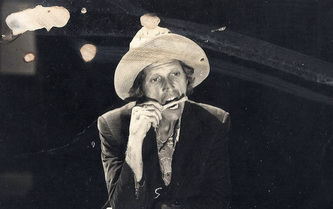



There seems to be nothing to be done to reconcile these competing camps, and productions of “Godot” do what they will. Borchardt continued, “we do not insist on any particular pronunciation.” Borchardt said he had consulted with Edward Beckett, a nephew of the author, who told him that his uncle pronounced it the same way, and that Edward Beckett could not see “why there should be a correct or incorrect way of pronouncing Godot.” “I myself have always pronounced it the French way, with equal emphasis on both syllables,” Mr. Given the play's deep exploration of the absurd humor and feelings of alienation that arise from this nihilistic understanding of the world, one could say that Waiting for Godot is, at its core, about nothing.Georges Borchardt, a literary agent who represented Beckett and continues to represent his literary estate, suggested even a third pronunciation was possible. This seems to describe the world of the play, largely emptied out of meaning, emotion, and substance, leading to characters who blather on endlessly in insignificant conversation. Deriving from the Latin word for "nothing" ( nihil), it is a worldview centered around negation, claiming that there is no truth, morality, value, or-in an extreme form-even reality. Broadly defined, nihilism is a denial of any significance or meaning in the world. Audience members might at times feel uncomfortable and want, like Estragon, to leave, but are bound to stay, in case Godot should actually arrive later in the play.Īll of this waiting for nothing, talking about nothing, and doing nothing contributes to a pervasive atmosphere of nihilism in the play. Just like Estragon and Vladimir, the audience waits during the play for some major event or climax that never occurs.

Beckett has deliberately constructed a play where not only his characters, but also his audience wait for something that never happens. The boredom of the characters on-stage mirrors the boredom of the audience. Both Vladimir and Estragon repeat throughout the play that there is "nothing to be done" and "nothing to do." They struggle to find ways to pass the time, so they end up conversing back and forth about nothing at all-including talking about how they don't know what to talk about-simply to occupy themselves while waiting. As a result of this endless waiting, both Vladimir and Estragon are "bored to death," as Vladimir himself puts it. Estragon repeatedly wants to leave, but Vladimir insists that they stay, in case Godot actually shows up. Vladimir and Estragon spend the entire play waiting for Godot, who never comes. As Beckett's title indicates, the central act of the play is waiting, and one of the most salient aspects of the play is that nothing really seems to happen.


 0 kommentar(er)
0 kommentar(er)
